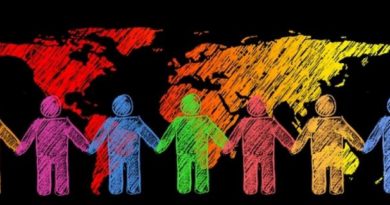Bryan Griffin: Great Reset? No Thanks.
Remember in 2009 when then Secretary of State Hillary Clinton traveled to Russia with a big, red, plastic button that she thought said “Reset”? Well, she presented it to her counterpart in the Russian Foreign Ministry only to be informed that the button read “overload” and was more reminiscent of an industrial emergency stop button than any sort of reset.
That’s what this new “great reset” is, too. It may be presented as something good, but it’s a sham. In form and function, it would bring a dramatic stop to the progress of humanity over the last 200 years.
The “Great Reset” trended on Twitter just a few weeks ago. Time Magazine published a full-throated endorsement of the idea. The New York Times would have you believe it is a far-right conspiracy theory, but the World Economic Forum features “The Great Reset” as the most prominent sub-topic on its website.
There’s a certain trend among many who are wealthy or who have tasted political power: they develop an affinity for telling the rest of the world what it should and shouldn’t do.
The World Economic Forum is a vehicle for that jet-set past-time.
In May, the Forum announced its yearly conference would focus on the idea of a Great Reset. The Forum’s founder, Klaus Schwab, wrote a book titled COVID-19: The Great Reset.
On the World Economic Forum’s website, an article by Forum member Mark Doumba is titled “The great reset must place social justice at its centre.” He pulls no punches in his vision for the world. “Wealth needs to be more broadly redistributed… Capitalism as we know it needs to be reformed.” “Welcome to the year 2030,” writes another Forum member, Danish Member of Parliament Ida Auken. “Welcome to my city – or should I say, ‘our city.’ I don’t own anything. I don’t own a car. I don’t own a house. I don’t own any appliances or any clothes.”
In his own article, “Now is the time for a great reset,” Schwab lays it all bare: “Every country, from the United States to China, must participate, and every industry, from oil and gas to tech, must be transformed. In short, we need a ‘Great Reset’ of capitalism.”
The context of the Great Reset is COVID. To the Great Reseters, the destruction wrought by massive government lockdowns in response to the virus (which many of them endorsed) is the perfect opportunity to rebuild the world economy.
Essentially, this Great Reset argues that if people have less control over their own economic outcomes in life, and if fewer people are part of the decisionmaking process of the spending priorities of the world’s governments, then the world’s biggest problems are solved. This is authoritarianism in sheep’s clothing.
This idea isn’t new. Many American politicians have been calling for massive redistributions of wealth for some time. Just days ago, Ilan Omar, Congresswoman from Minnesota, called for the federal government to “cancel rent and mortgage payments now” – an idea that would amount to an unprecedented taking of property by the government.
Whether the goals may be noble nor not, shifting economies from a free-market basis to one with compulsory outcomes leads down only one path.
Life before wide-spread free trade was pretty bad. The setting was very similar to what was described by Auken’s article: no one owned anything. Land, homes, horses – all of it belonged to the king. It was the king who determined everyone’s economic outcome, and everyone was poor and famished. Most people had no economic or political power.
Historically, “resets” were only successful if and only if two characteristics were true of the reset: 1) people were granted more freedom to spend their money as they see fit, and 2) more people become enfranchised into the global decisionmaking process.
Castro’s “reset” in Cuba and Lenin’s “reset” in Russia both lacked the aforementioned. Power was consolidated and trade became compulsory. Both ended in disaster.
America “reset” the world’s attitude about the role of government by affirming the right of each citizen to freely trade property, exchange ideas, and have a say in the highest national decisionmaking. There’s a reason that America has since been called “the land of opportunity.”
Much of the world spent the last 200 years pursuing free-er markets and democratization. Because the world has largely embraced the idea that people should be able to make exchanges as they see fit and decisions about their government, the quality of living worldwide has increased exponentially. Food and luxuries are now largely commonplace among the free.
This new “Great Reset” has the makings of a great disaster. To tackle poverty, to grow wealth among the masses, and to spur ownership of the environment that people live in, any potential “reset” would need to make people more free – not less. History shows us this. Economics prove this. Why can’t they get this message in Davos? Or Washington?
A “Great Reset”? No thanks.
Bryan Griffin of the London Center for Policy Research is a lawyer and author who specializes in American policy in the Middle East.
The views expressed by commentators are solely those of the authors. They do not necessarily reflect the views of this station or its management.
*** This article has been archived for your research. The original version from WAMC can be found here ***

